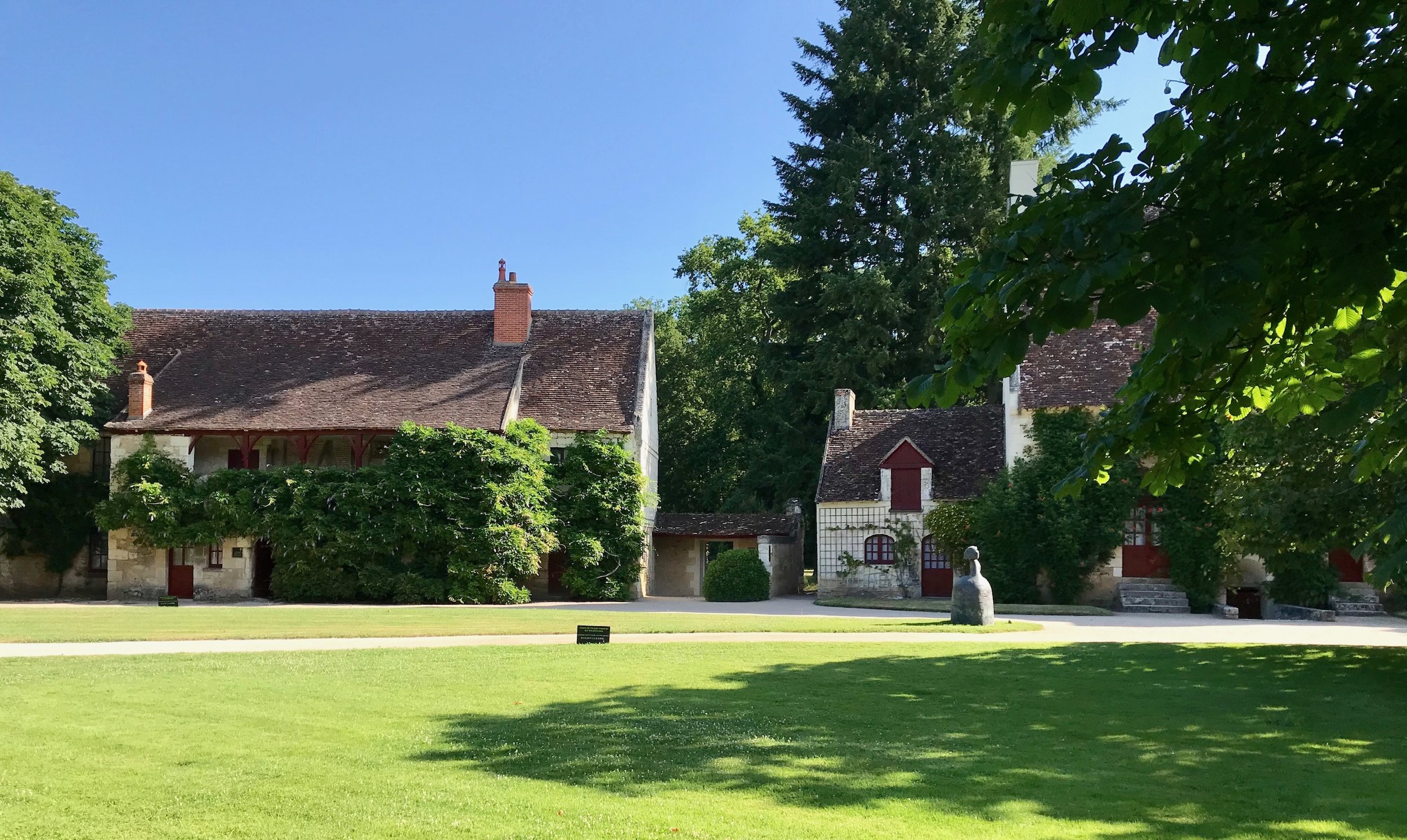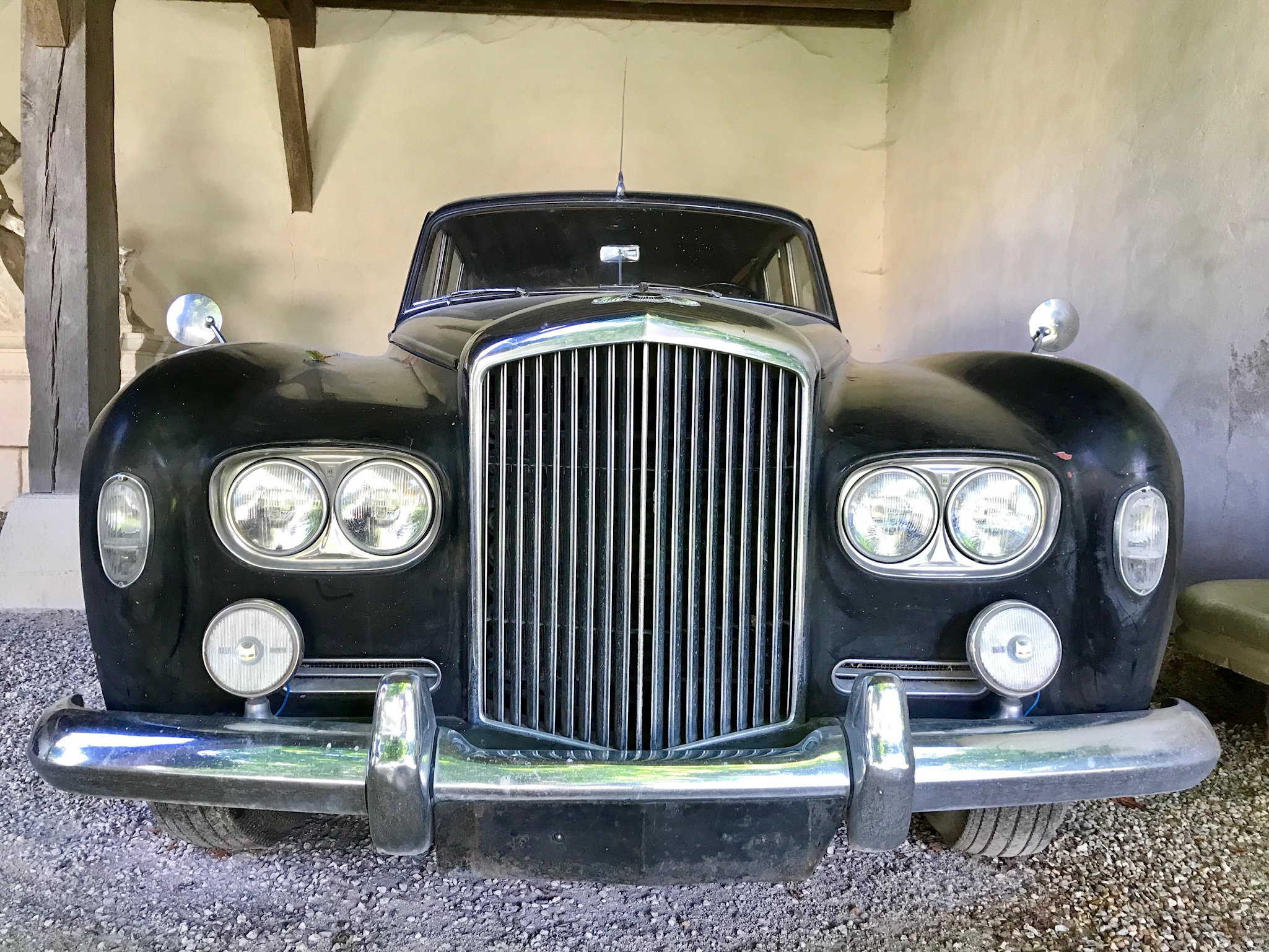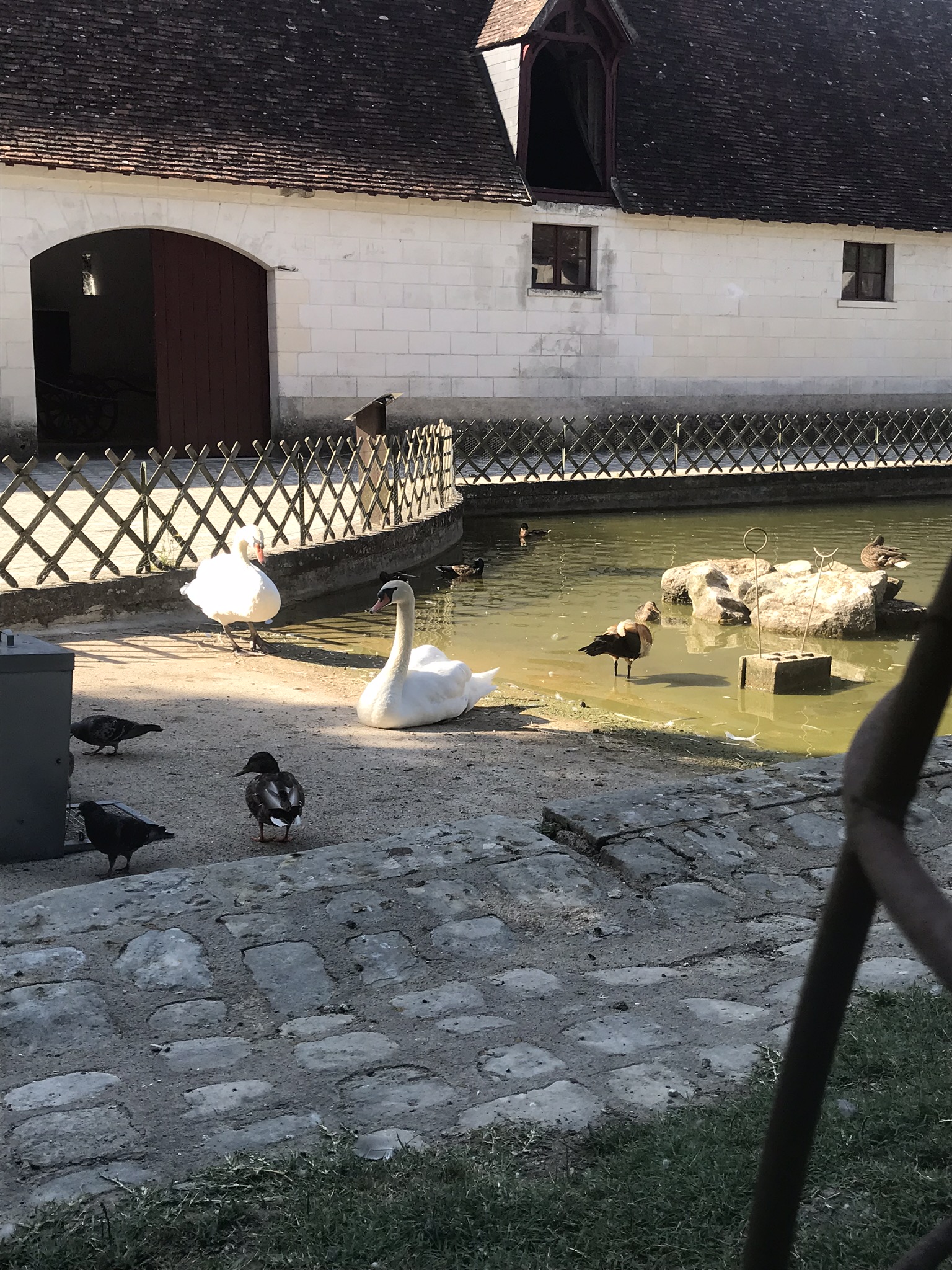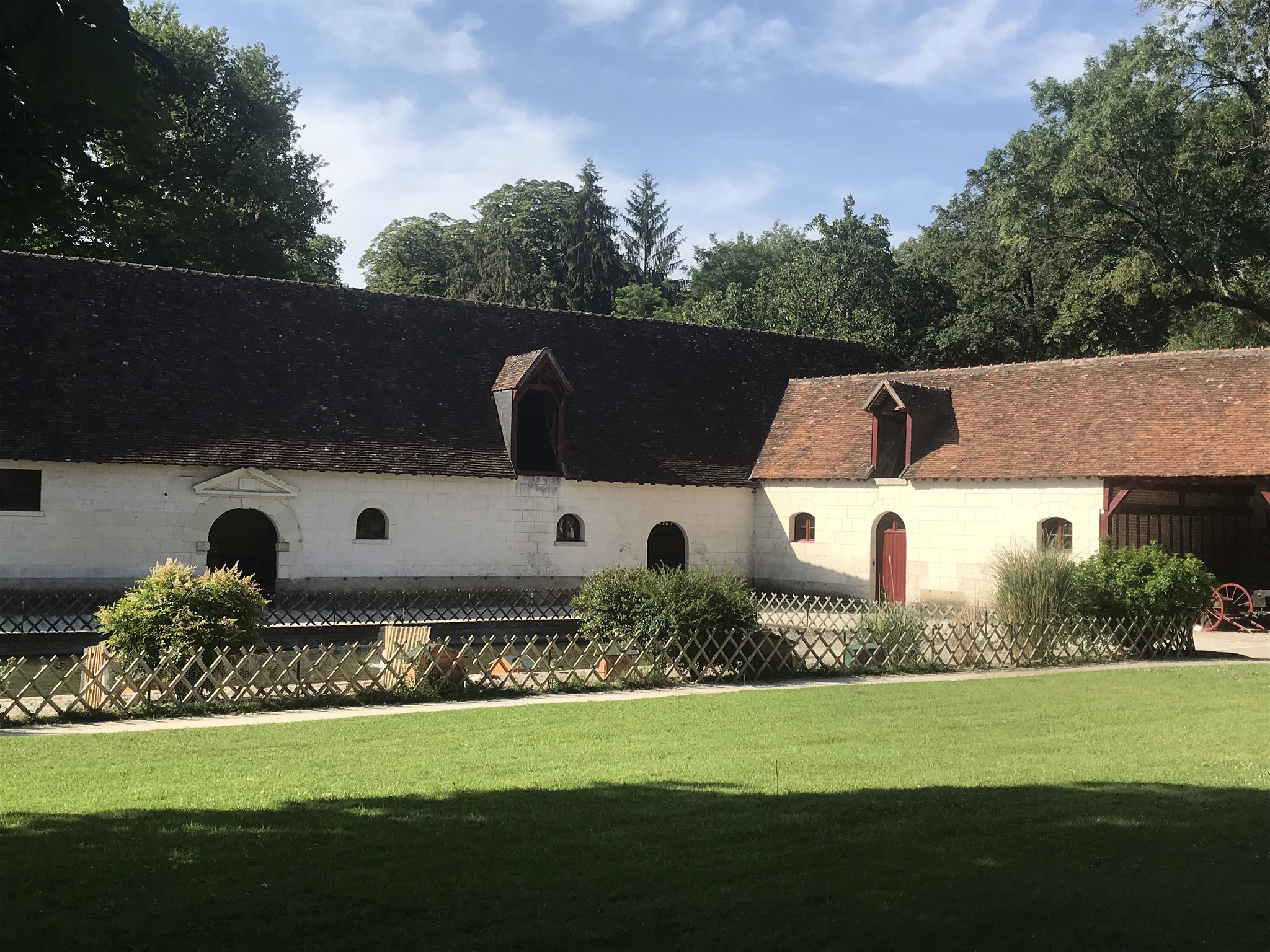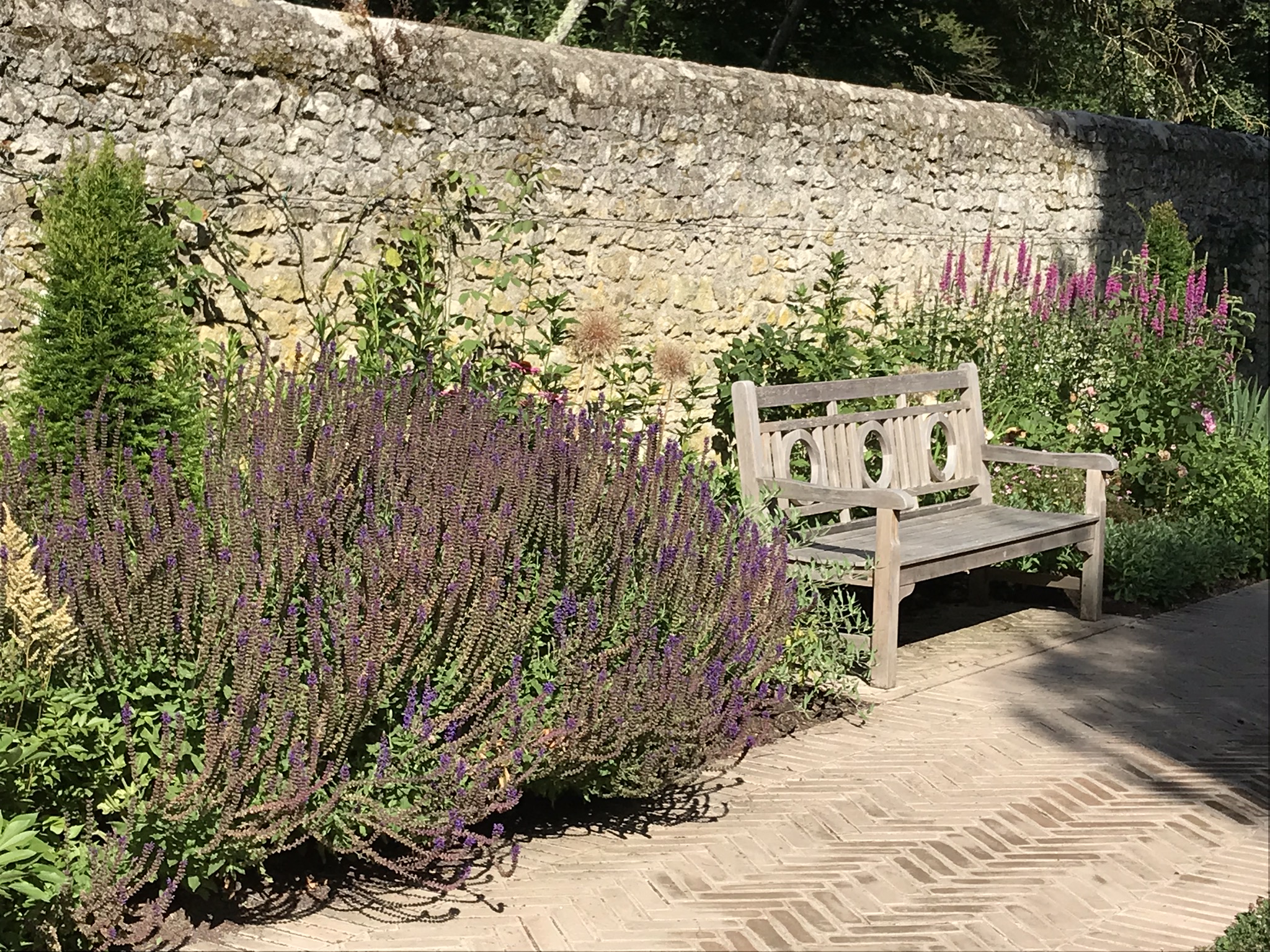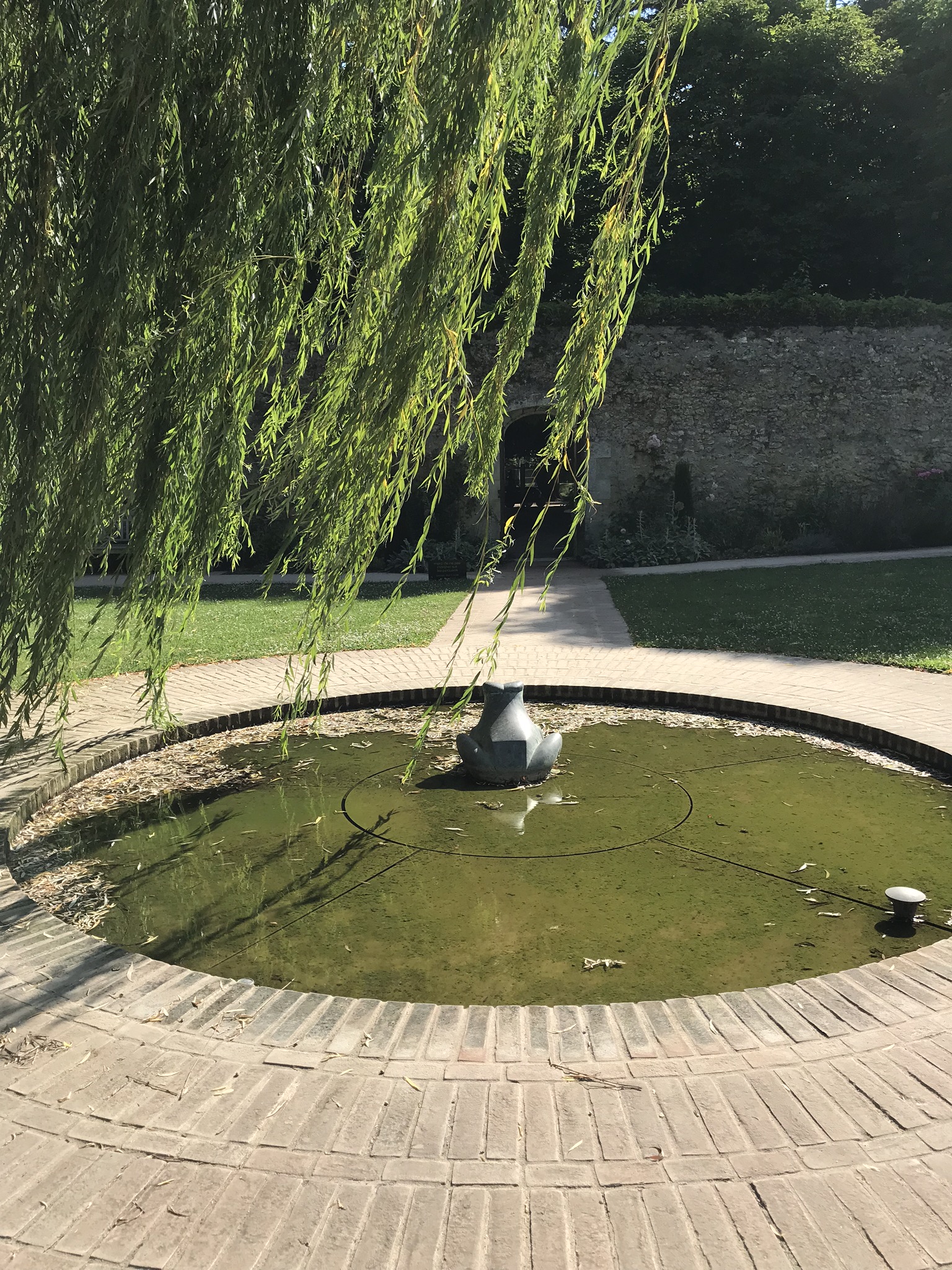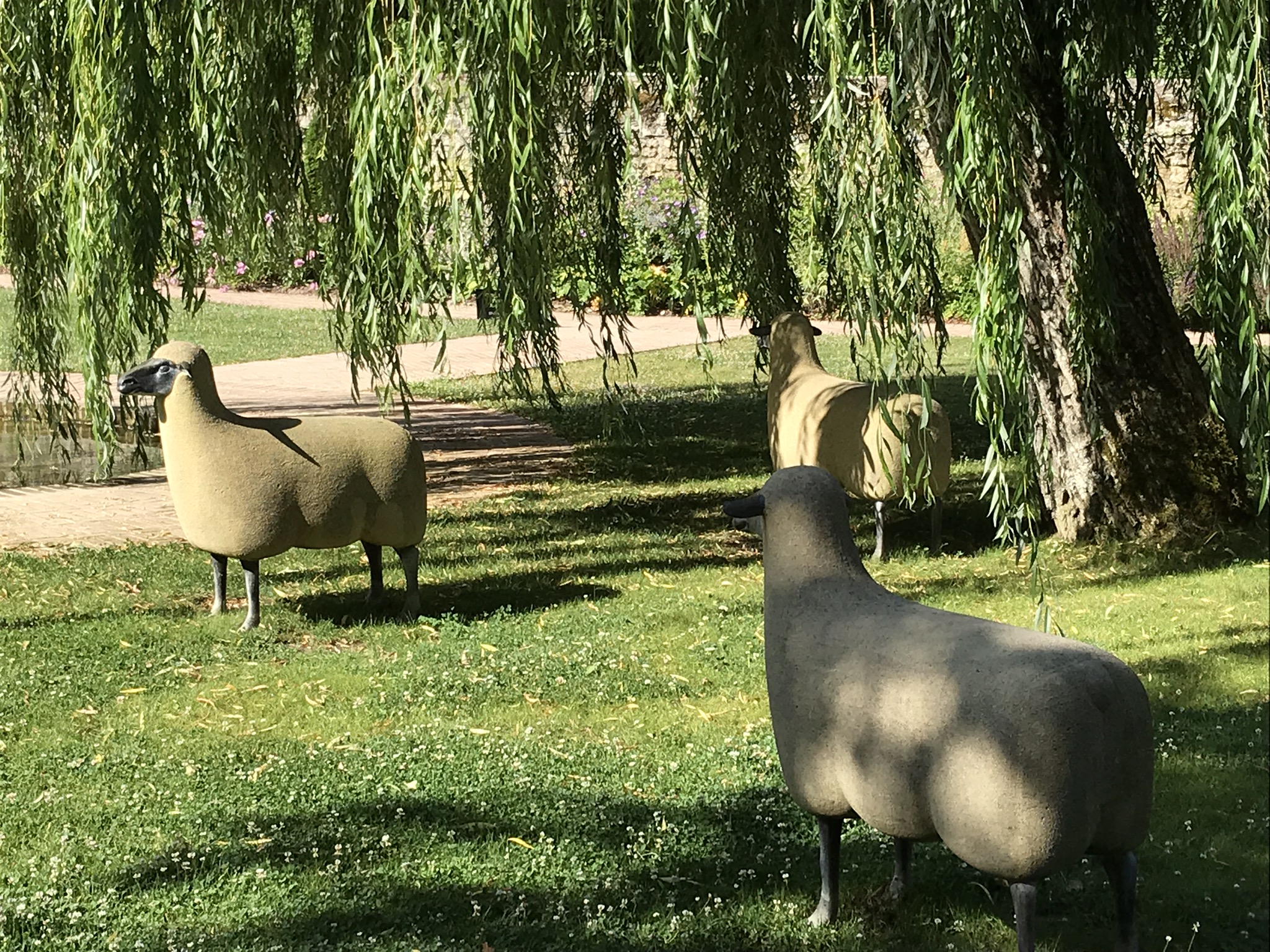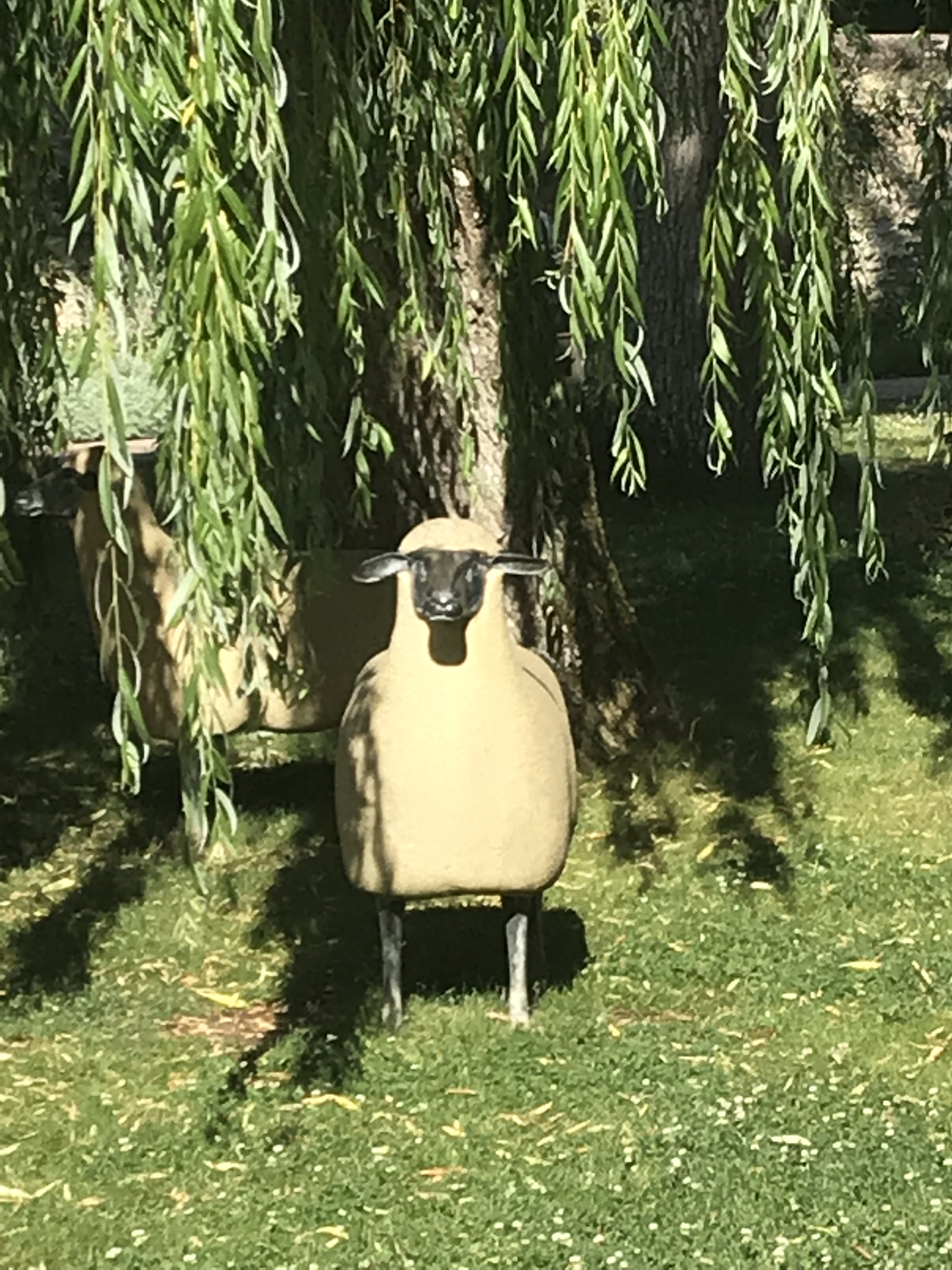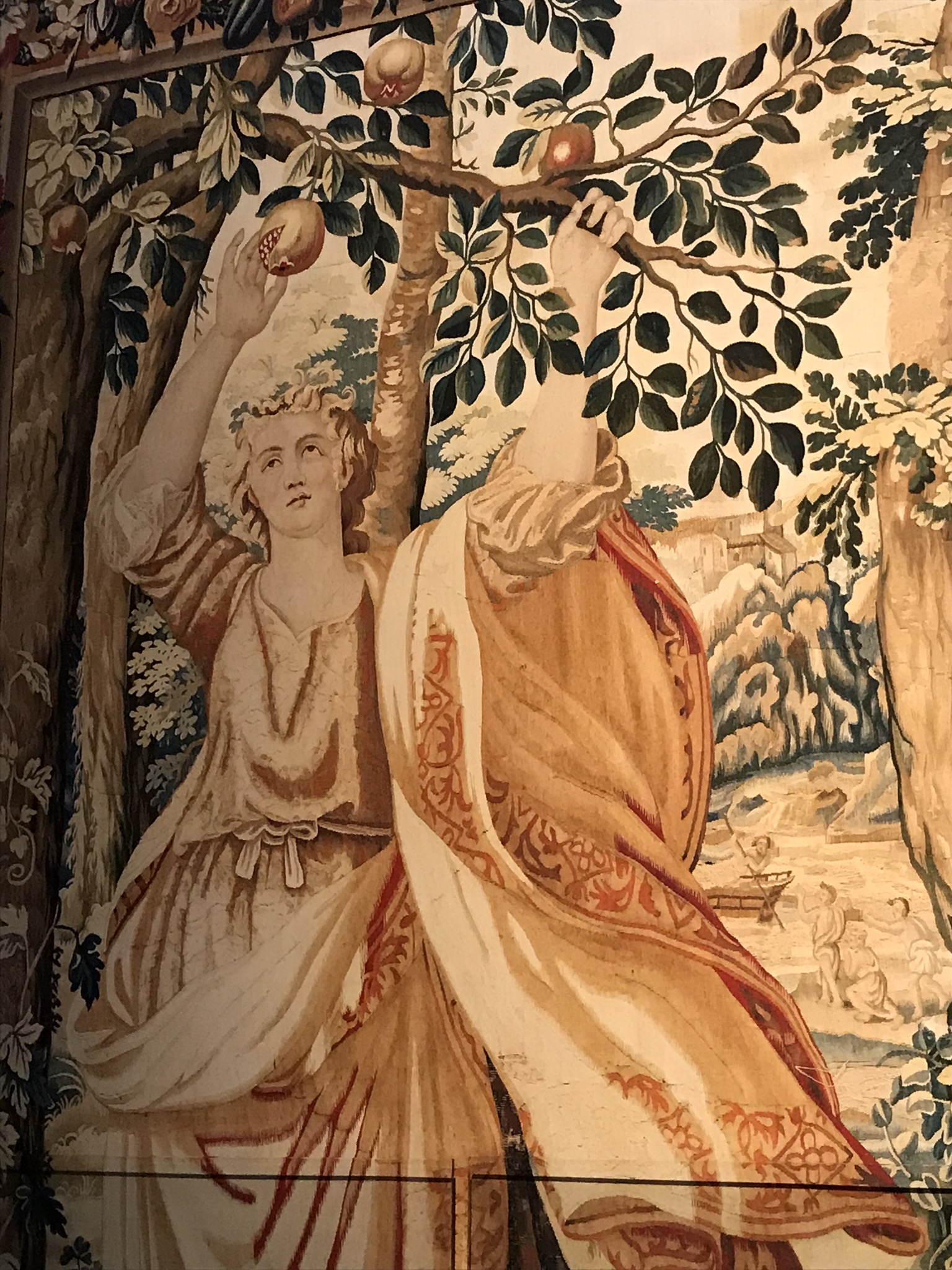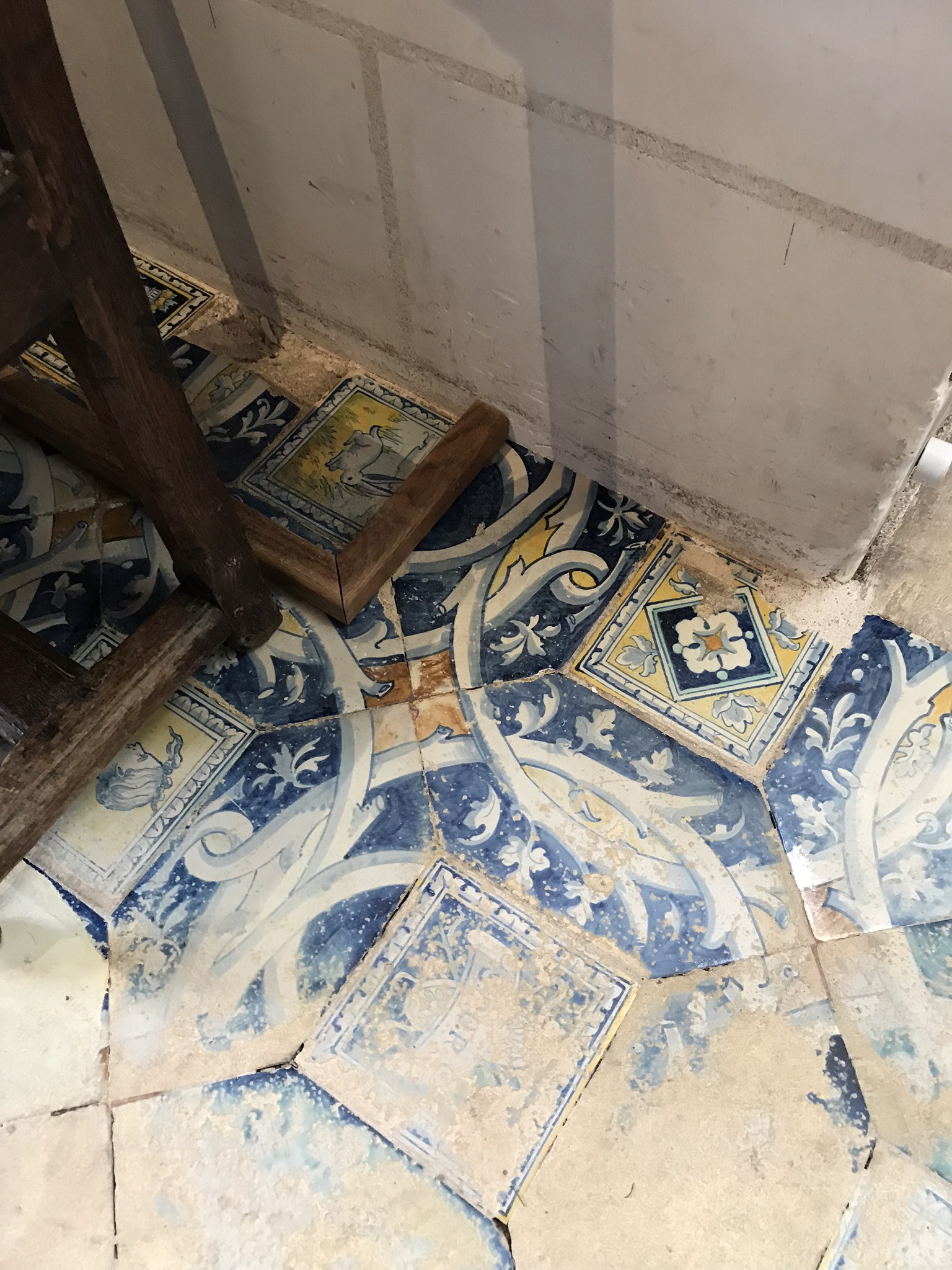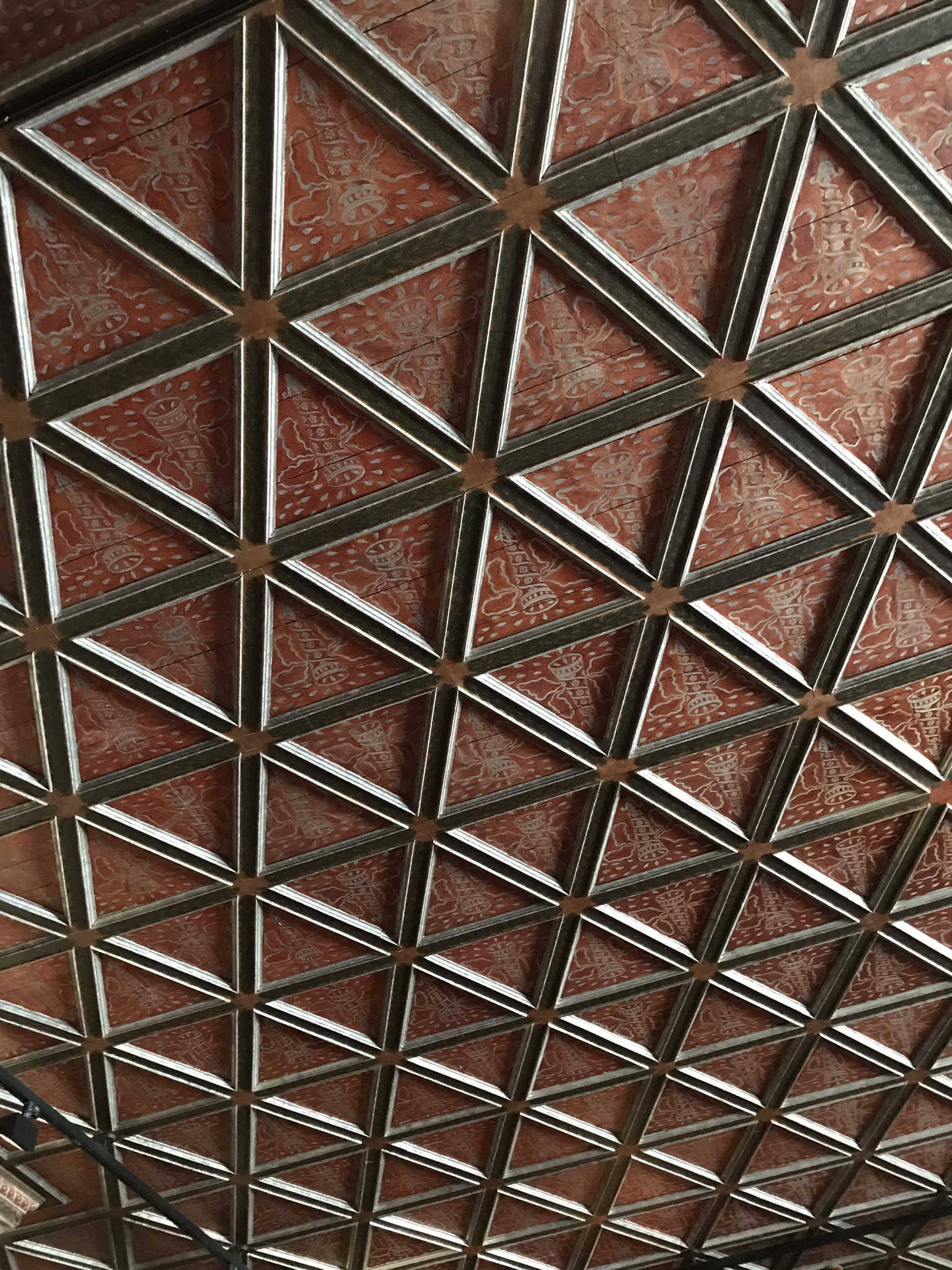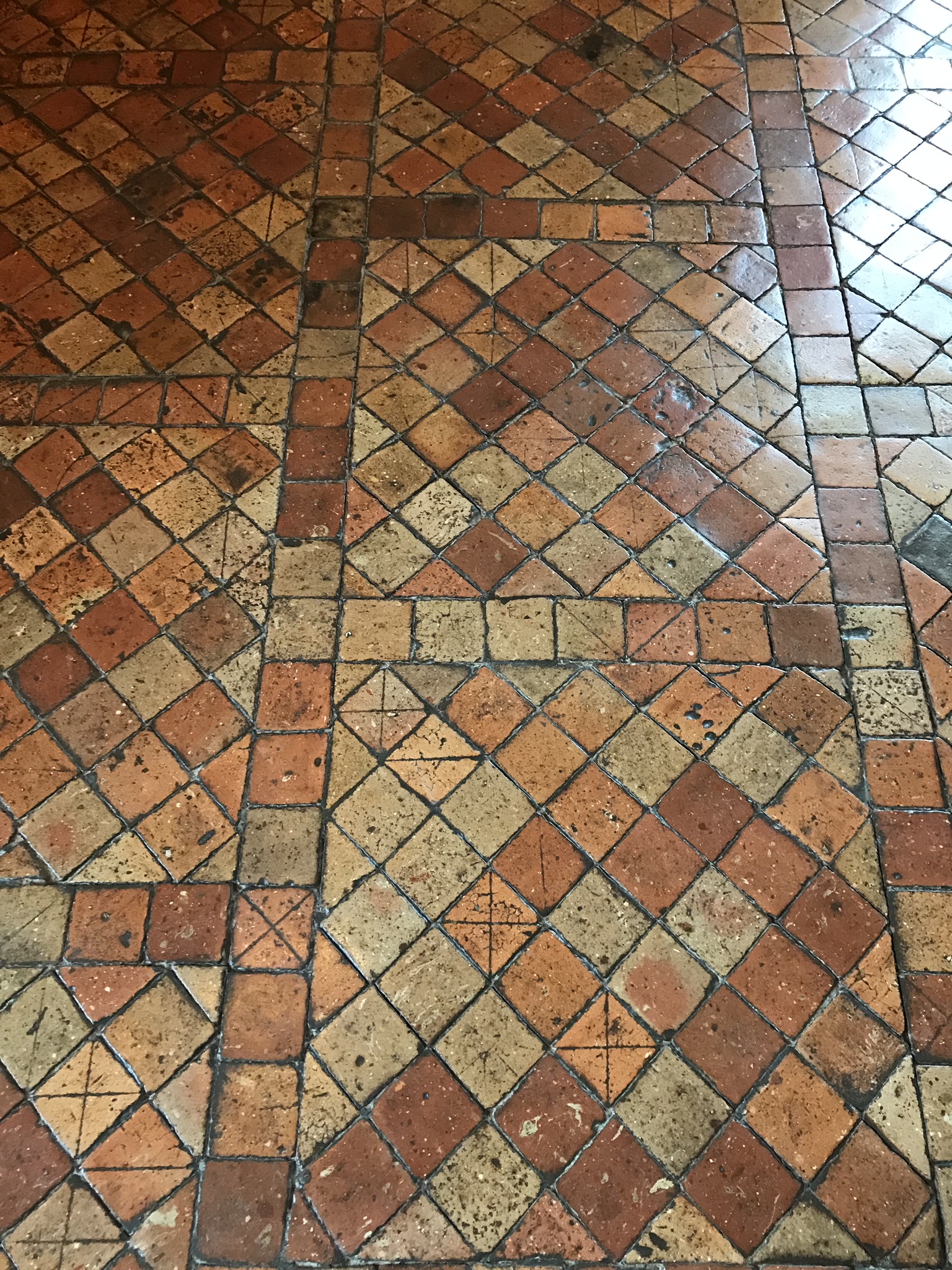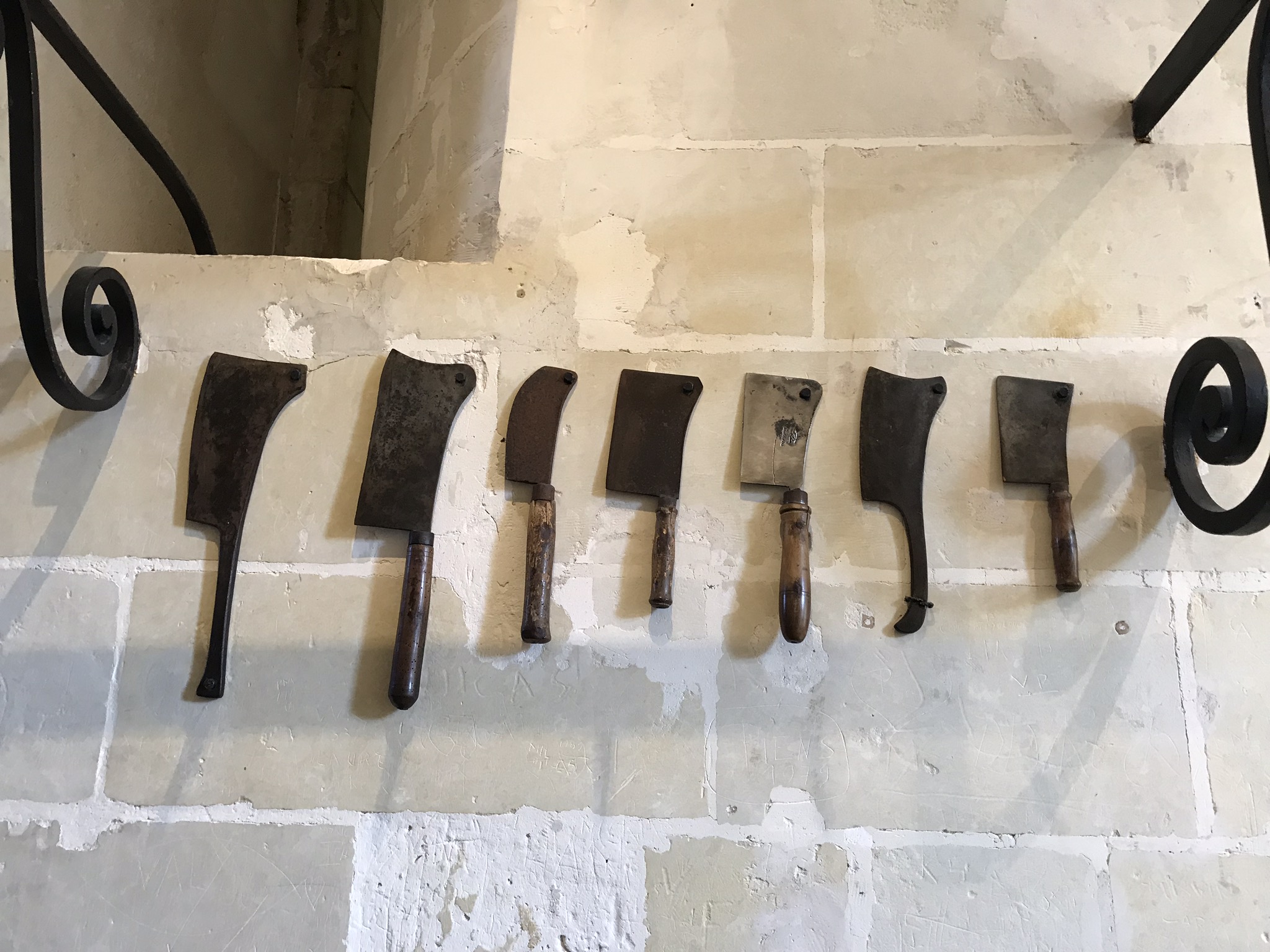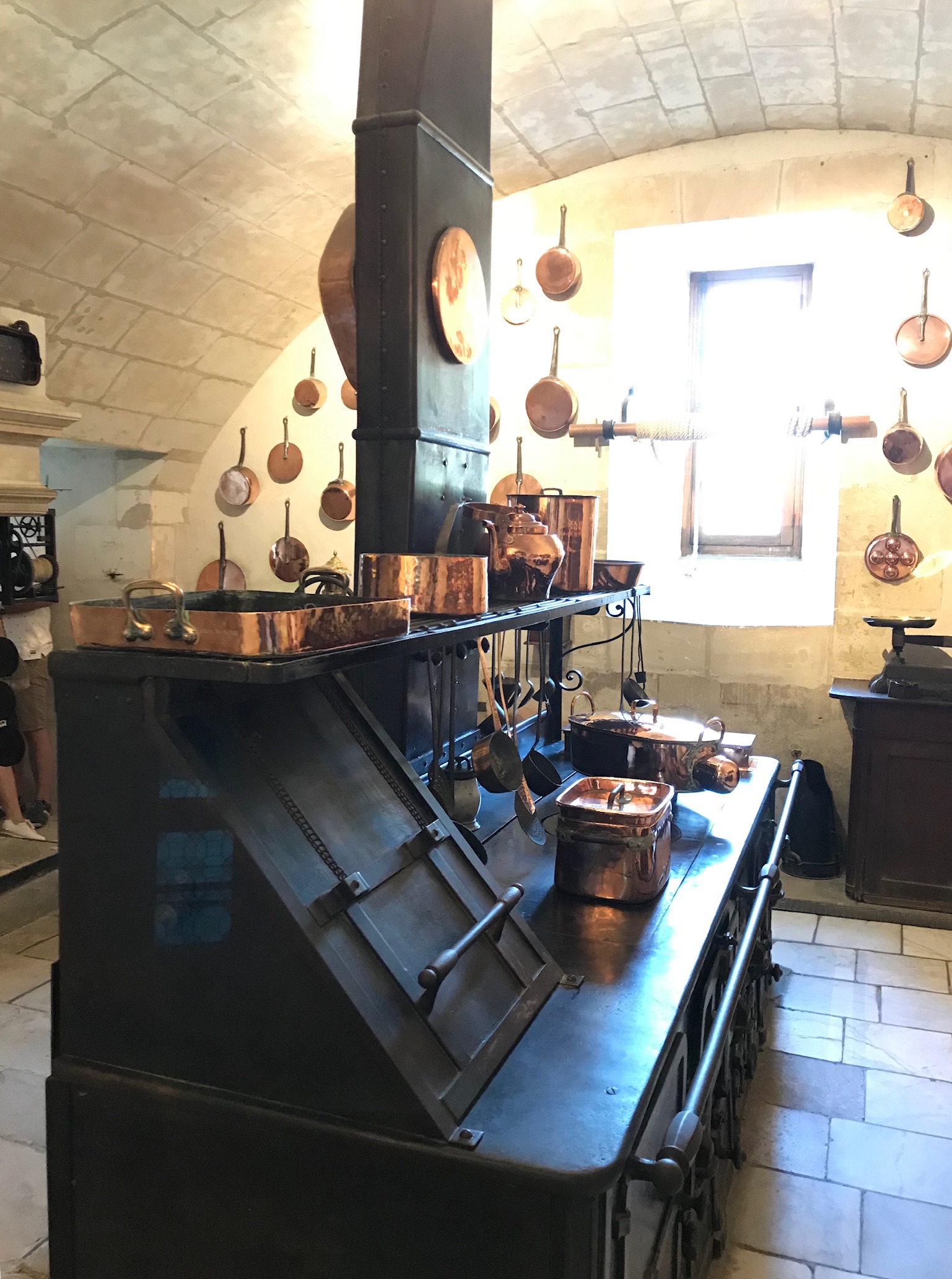Château de Chenonceau
Like Chambord, Chenonceau is another of the greatest hits château of the Loire.
I visited once before with my mom in 2000 and I was pleasantly surprised by the improvements made to the tourist experience. Mark and I chose the nicest day of the week and headed out early so that we could enjoy the gardens.
We started in the flower “potager” where they grow all of the flowers for the floral displays in the château.
They also grow the veg for the fine dining restaurant housed in one of the many out buildings on the grounds.
Many of the beds and borders are outlined with the same low, single-cordon espalier apple trees seen in other formal potager gardens. It’s a great way to define a space and get a nice crop at the same time.
Next to the potager, the original 16th century farm has been renovated to house different collections associated with the château.
One of the newest exhibits created to celebrate the 500th anniversary of the renaissance in the Loire Valley is a reproduction of Catherine d’ Medici’s apothecary. The queen was known for using keen political manoeuvering and possibly poison to remove her rivals. She was also very well educated and interested in the science of her day. She was a true renaissance woman!
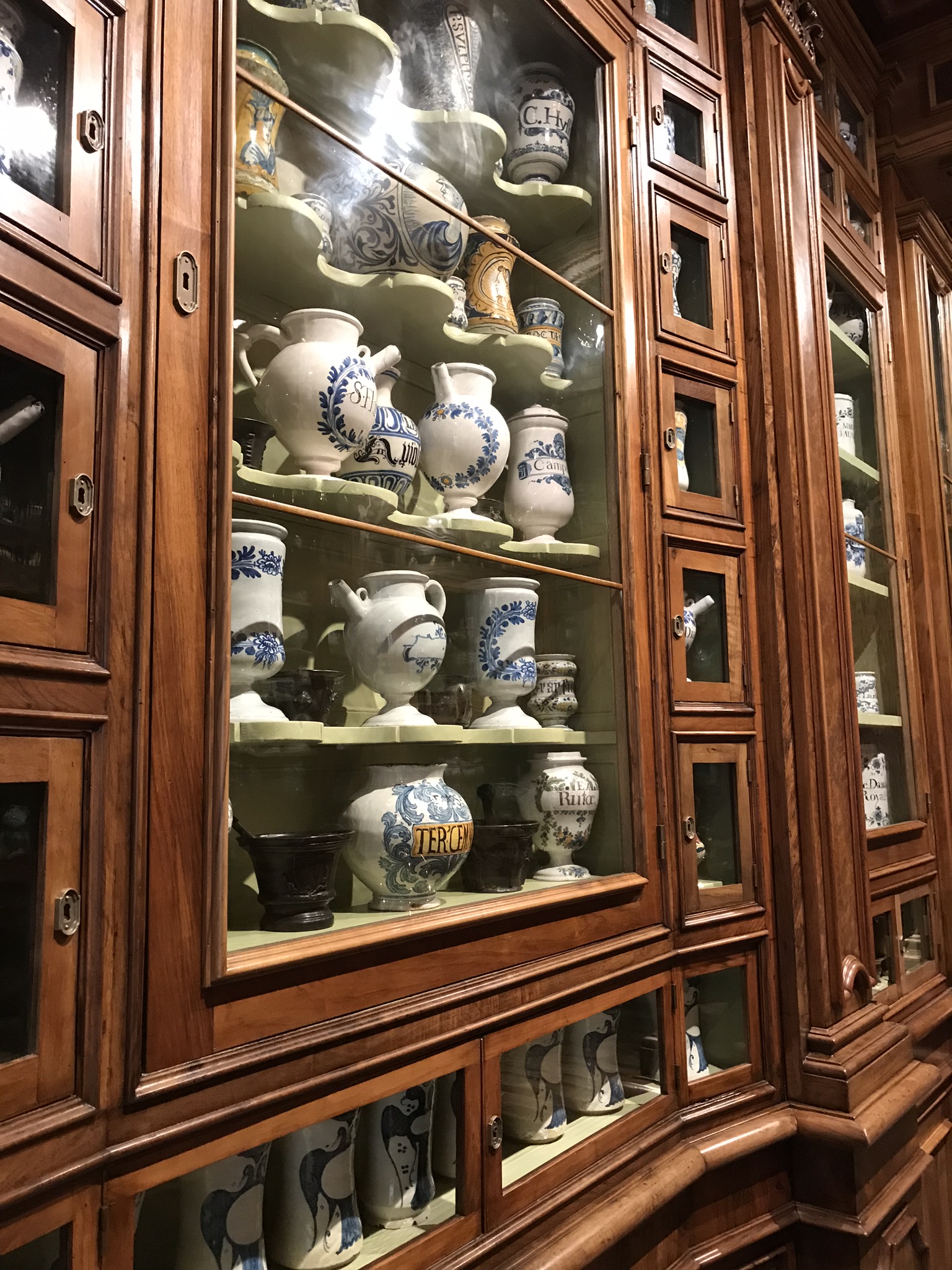
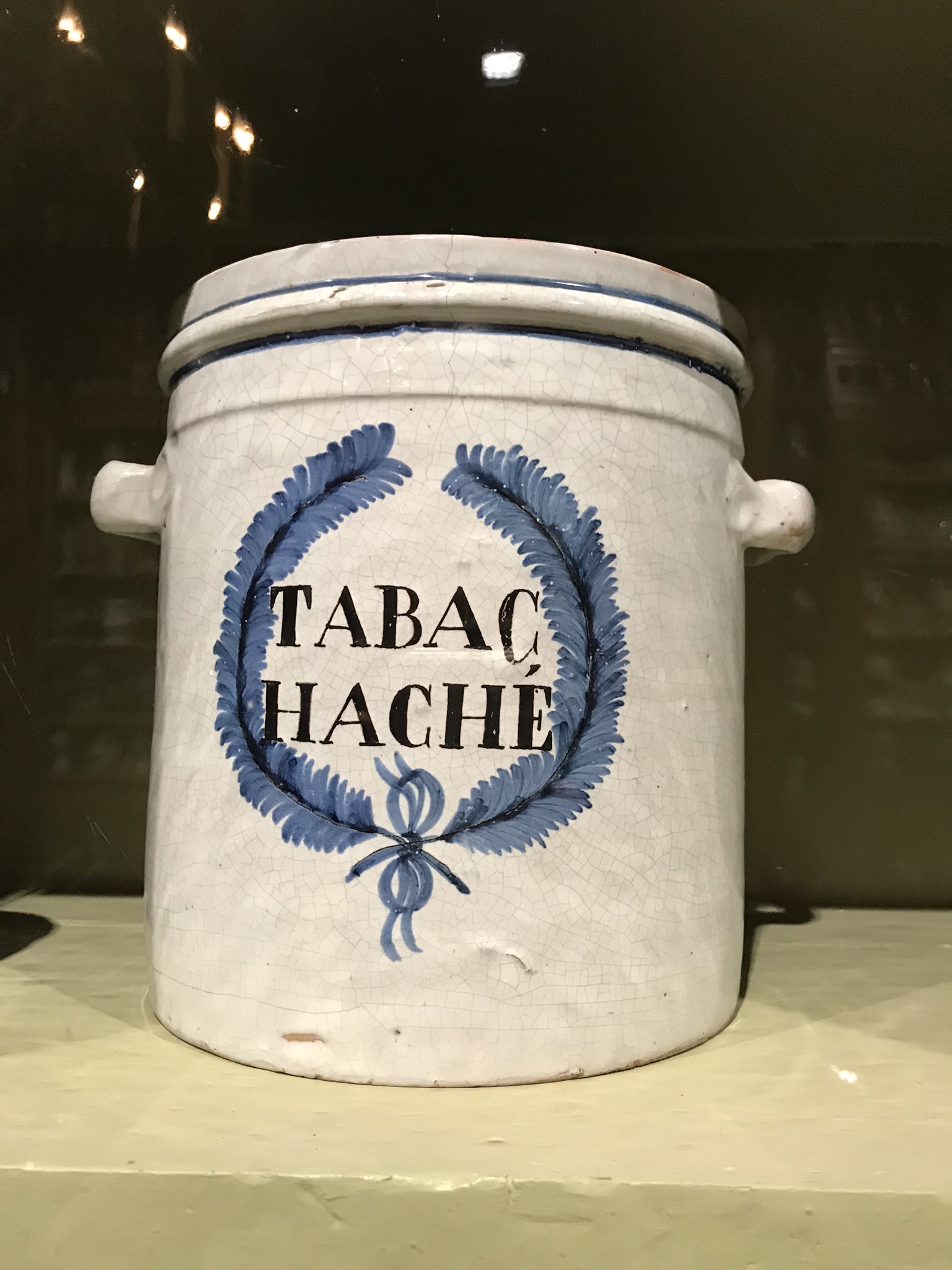
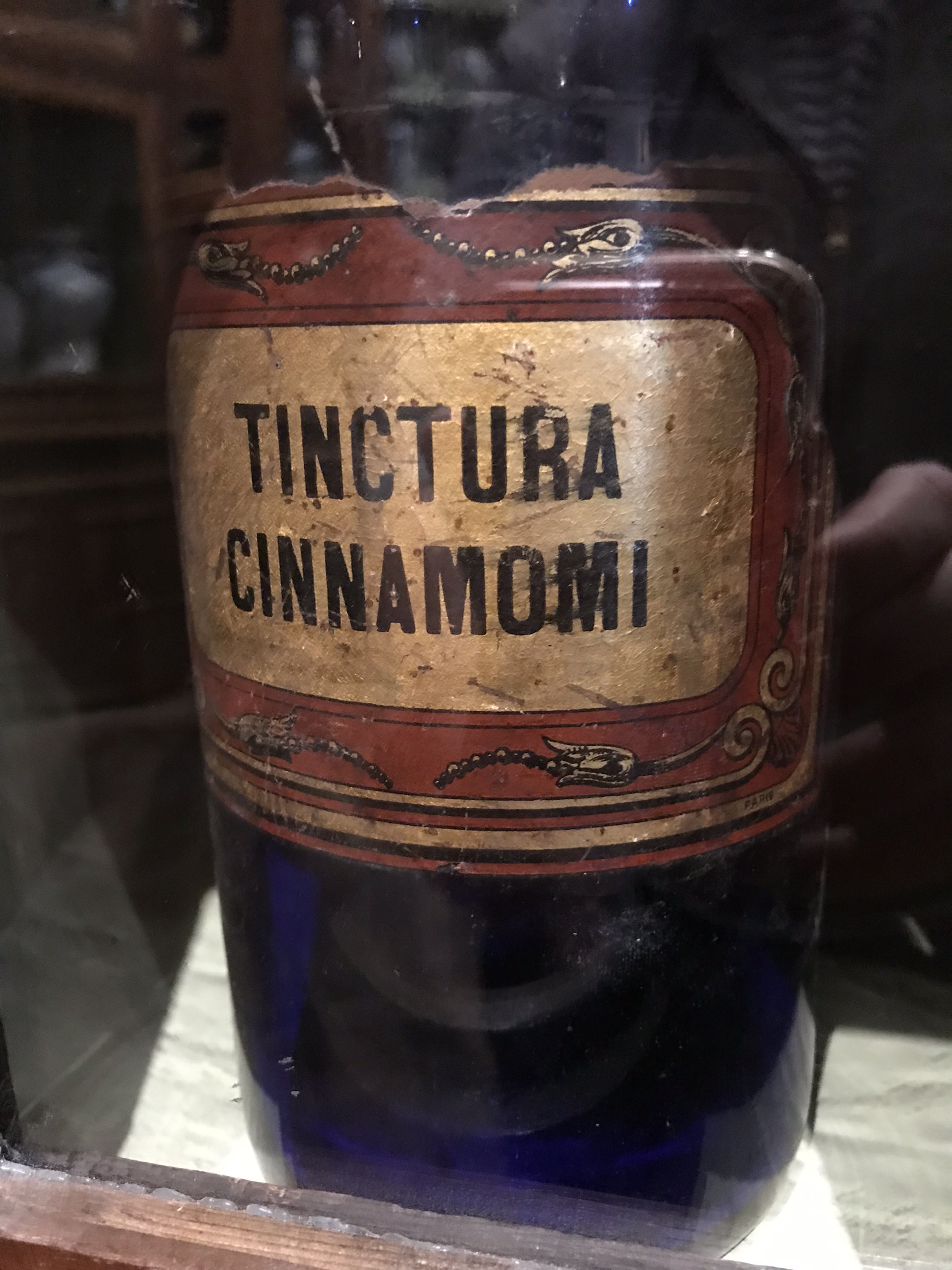
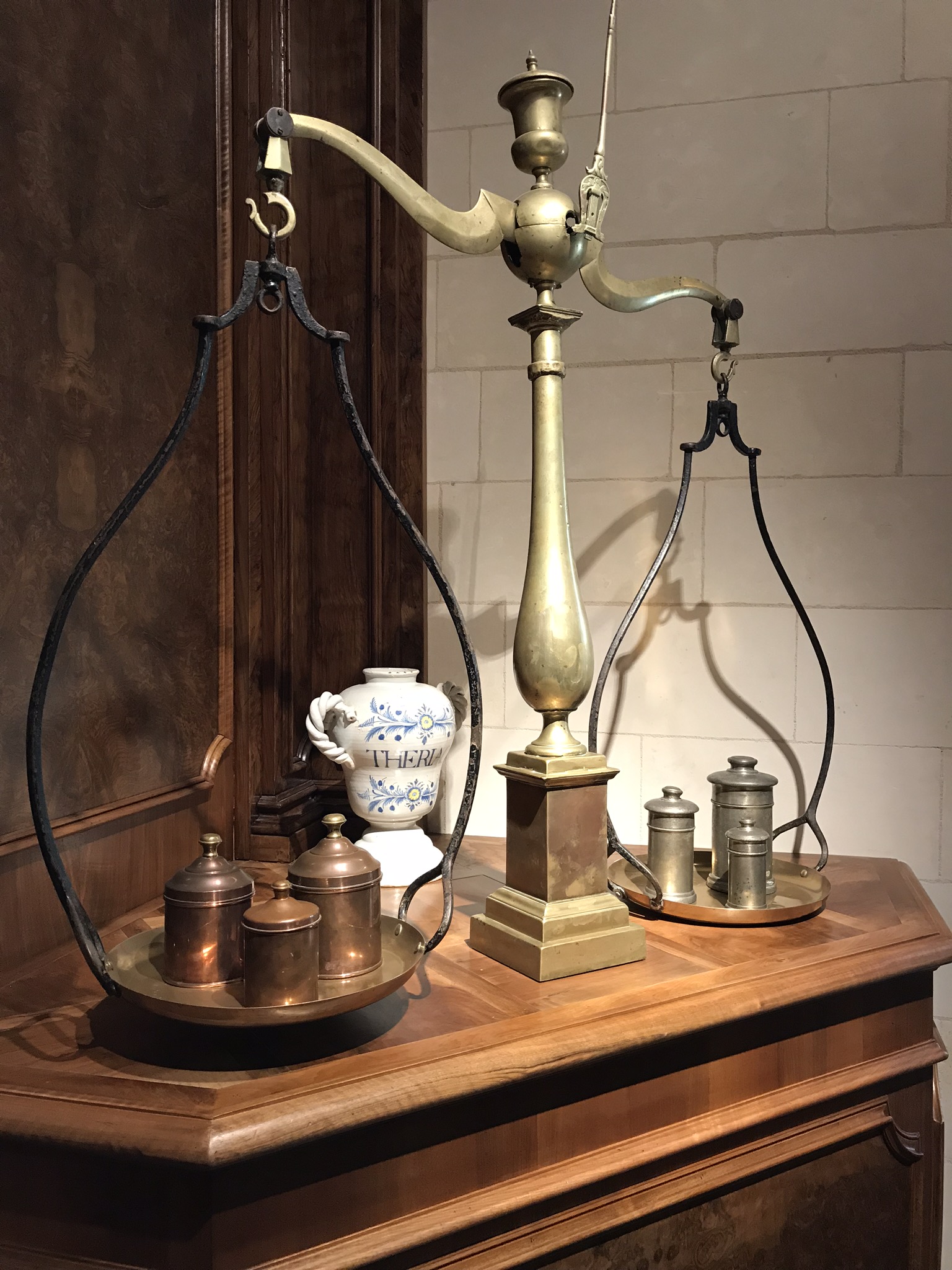
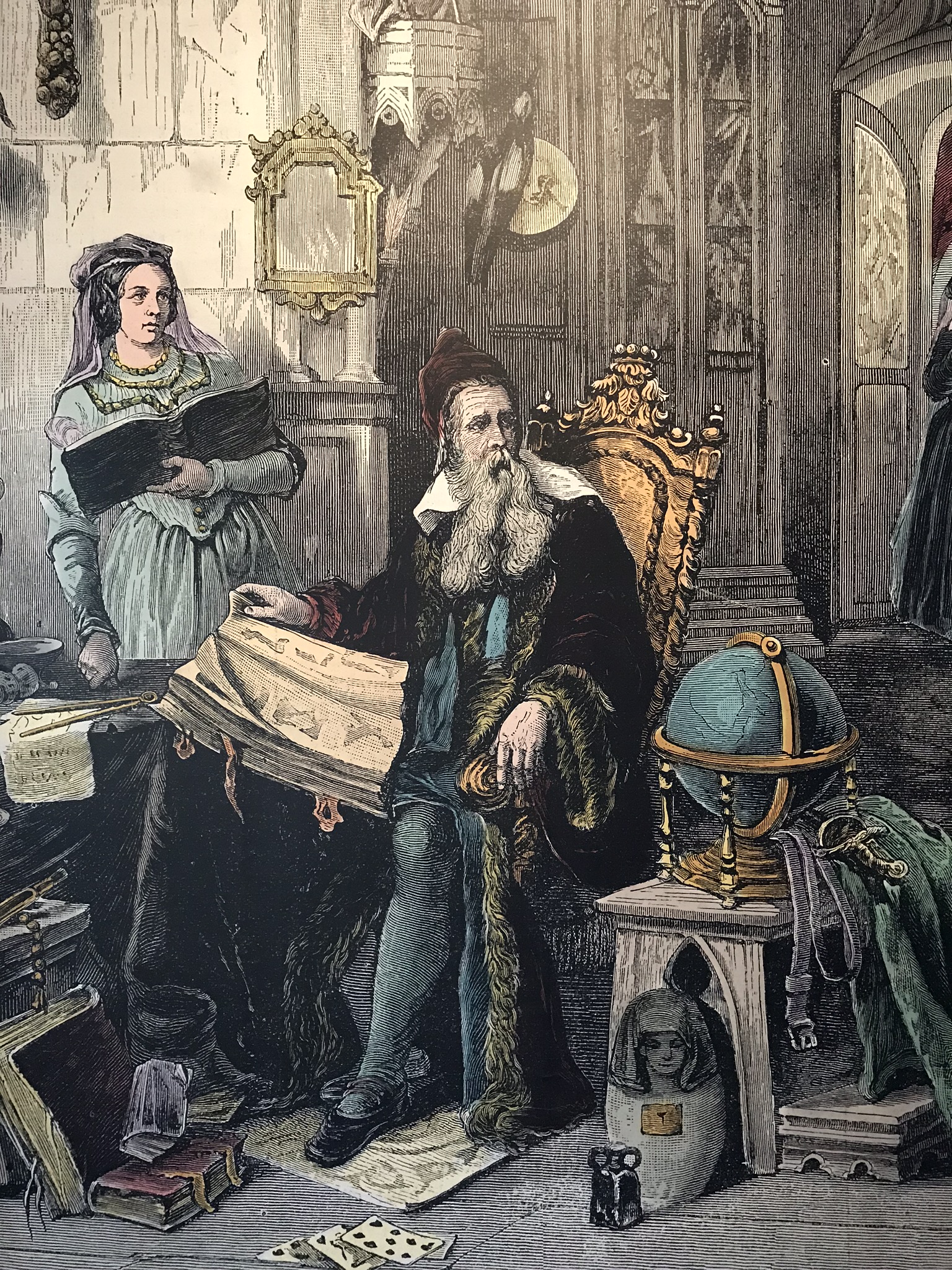
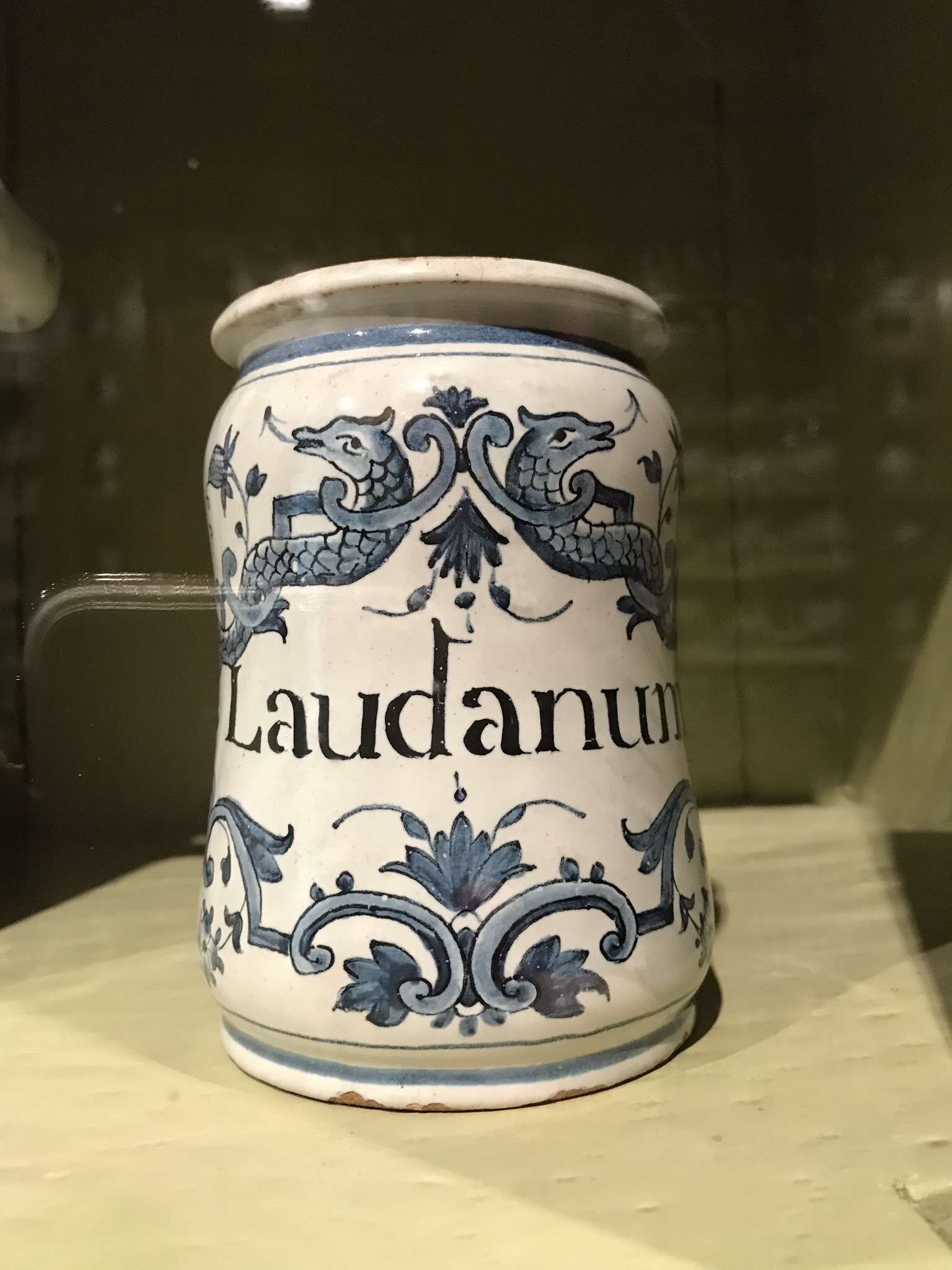

Looks like she had everything she needed!
One of my favorite additions to the château grounds since my last visit was the walled garden dedicated to one of the château’s former head gardeners. A perfect spot for quiet contemplation.
Eventually, we moved on to the Diane de Poitiers garden. In 1547, King Henri II gifted Chenonceau to his “favorite lady” and she installed the magnificent sunken garden on the east side of the château.
She also added a bridge over the river Cher to connect it to the south bank. After the King’s death, Catherine removed Diane to another nearby château and moved into Chenonceau herself. She built the two story gallery that makes it such an architectural gem.
Thankfully, she kept Diane’s garden and added her own on the north side of the château.
Inside, the rooms are decorated as they would have been in Catherine’s time.
Everywhere you look, every surface is embellished.
The highlight of the tour for most people is the first floor gallery that spans the river. Apparently, Catherine placed her throne at the far end of the gallery so that her subjects would be forced to walk backwards for the entire 60 meter length before turning to leave her presence. She had quite a sense of humor!
The highlight for me was the kitchens. Catherine loved fine food, so of course, her kitchens were state of the art.
Nice cooker!
The kitchens occupy an entire lower floor of one of the towers of the original château. There was even a loading dock so that boats filled with goods could be delivered directly into the kitchen.
It’s an amazing place and well worth a visit.





